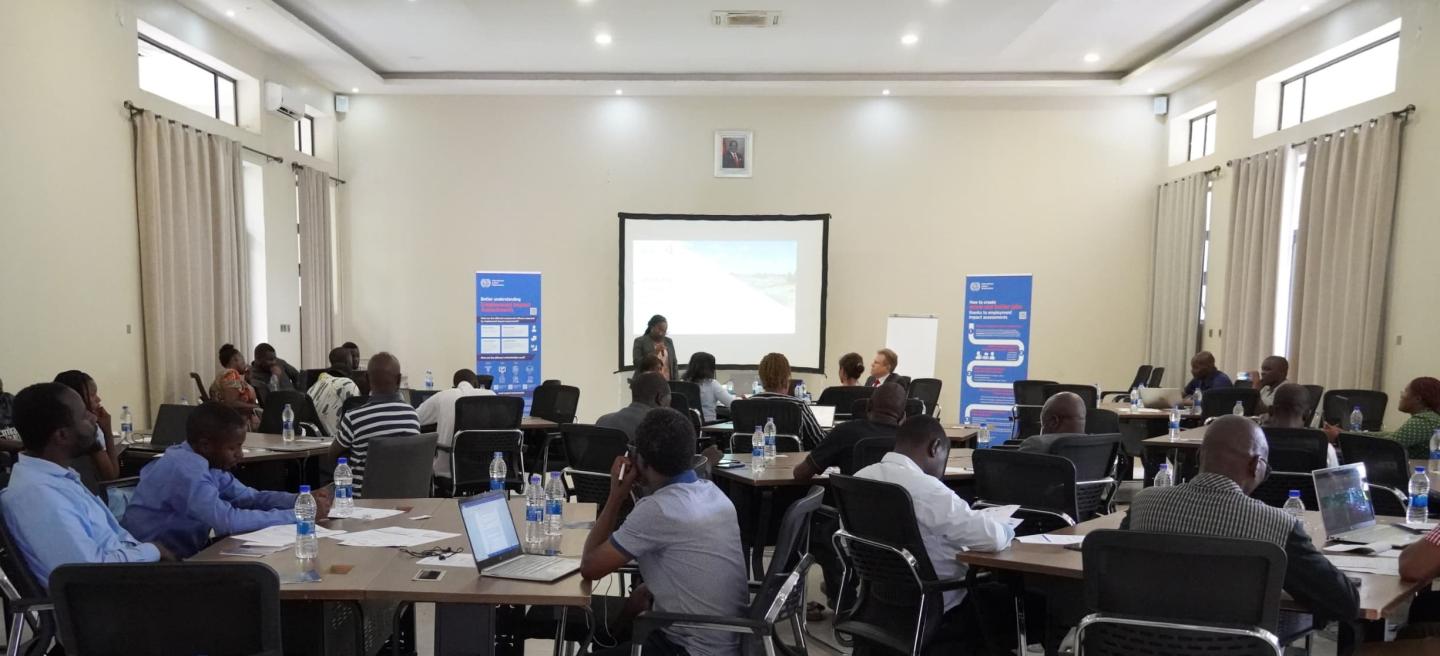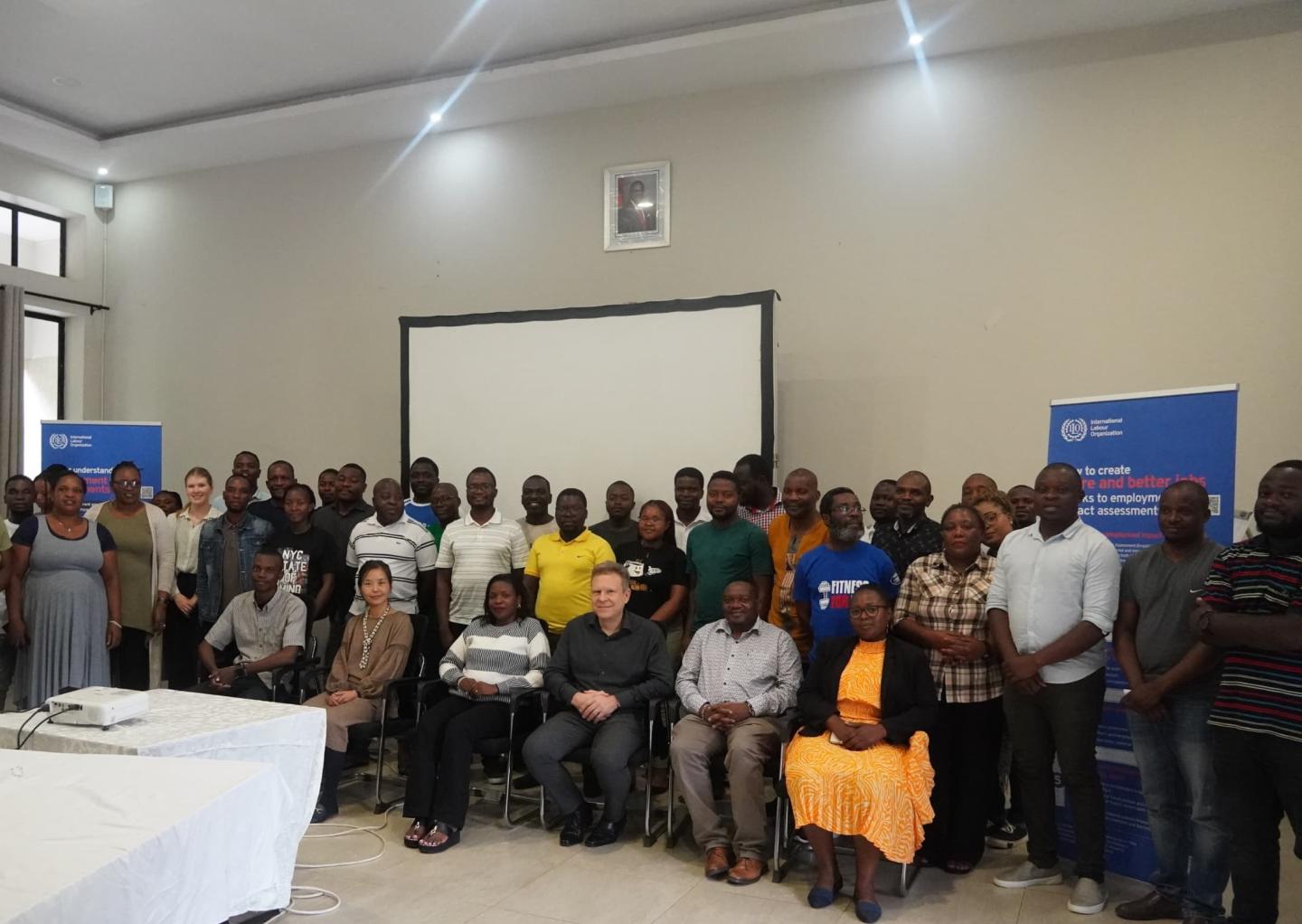Salima - Malawi has taken a major step toward institutionalizing Employment Impact Assessments (EmpIAs) in its public investment planning, reinforcing its commitment to aligning investments with the creation of decent jobs. From 18–20 February 2025, over 50 policymakers and researchers from 14 government agencies and universities convened in Salima for a three-day technical workshop on EmpIAs.
Jointly organized by the International Labour Organization (ILO) and the Ministry of Labour of Malawi, the workshop built on the momentum of an earlier technical training held in September 2024. It was conducted under the Joint UN project supported by the Joint SDG Fund as part of the Global Accelerator on Jobs and Social Protection for Just Transitions, with additional financial support from the Government of Korea.
As a pathfinder country of the Global Accelerator, Malawi is advancing efforts to accelerate employment creation and expand social protection. This workshop directly supported the national roadmap of the Global Accelerator by equipping institutions with tools to measure both quantitative and qualitative employment outcomes and integrate them into public investment decision-making processes.

The event provided an opportunity for government officials to present the results of EmpIAs conducted on ten projects selected from the 2023/24 Public Sector Investment programmes (PSIP). It provided a platform for participants to share their experiences and challenges in conducting these assessments. hese assessments covered key initiatives such as the Shire Valley Transformation Project (Phase 1) and the Agriculture Commercialization Programme, which together represent a total investment of MWK 2.74 trillion (approximately USD 1.6 billion), equivalent to 13% of Malawi's GDP.
The Ministry of Labour underscored the value of Employment Impact Assessments as a strategic tool for monitoring job creation across public and private investment programmes. This initiative represents a critical first step toward formalizing the use of EmpIAs in assessing both the job creation potential and the overall viability of investment projects.

Technical sessions explored complementary analytical approaches, including advanced economic modelling, experimental and quasi-experimental methods, and GIS-based tools to refine the accuracy and applicability of EmpIAs.
On the sidelines of the workshop, the ILO STRENGTHEN2 team met with the National Statistical Office (NSO) and the Malawi University of Business and Applied Sciences (MUBAS) to embed EmpIA capacity within national institutions by exploring the use of Integrated Household Survey data to conduct EmpIAs and the possibility of supporting curriculum development for MUBAS. These efforts aim to foster local expertise and data capabilities, ensuring the sustainability of EmpIAs as part of Malawi’s development planning toolkit.
By strengthening national capacity and embedding EmpIA into policy frameworks, Malawi—supported by the Global Accelerator—is laying the foundation for investments that generate more and better jobs for all.